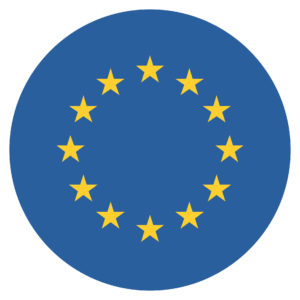EU Urges Citizens to Stockpile Essentials for Crisis Preparedness
Bishwajit March 27, 2025 0
Image by Creazilla
Galaxy Tribune Report

A Call for Readiness Amid Rising Global Threats
A Call for Readiness Amid Rising Global Threats
The European Union has issued a strong recommendation for its 450 million citizens to prepare emergency supplies that can sustain them for at least 72 hours in the event of a crisis. Officials cite growing concerns over war, cyberattacks, climate change, and disease as key factors making such preparedness essential. This initiative comes as the EU reassesses its security strategy, particularly in light of global developments that highlight the need for greater self-reliance.
Security Challenges and Strategic Preparedness
The continent has faced significant challenges in recent years, including the COVID-19 pandemic and geopolitical tensions with Russia. NATO Secretary-General Mark Rutte has cautioned that Russia may be capable of launching another military offensive in Europe by 2030. As part of a broader security overhaul, the EU aims to enhance its crisis response and ensure that nations within the bloc can act swiftly and effectively in emergencies. Key Items for Emergency Kits Preparedness and Crisis Management Commissioner Hadja Lahbib emphasized the importance of proactive measures, urging people to gather essential supplies. Recommended items include food, water, flashlights, identification documents, medicine, and shortwave radios. Lahbib stressed that while the EU does not wish to incite fear, citizens should be equipped to manage short-term disruptions independently.
Strengthening Resilience with Strategic Resources
In addition to personal preparedness, the EU is working on plans to create a “strategic reserve” that would ensure a steady supply of critical resources. This includes stockpiling firefighting planes, medical supplies, energy and transportation equipment, and assets to counter chemical, biological, radiological, and nuclear threats. Some EU countries, such as France, Finland, and Sweden, have already adopted similar measures. Sweden, for instance, recently updated its Cold War-era civil emergency guidance to address modern security concerns. While crisis preparedness varies across member states, the EU is advocating for improved coordination to ensure a unified response during emergencies. “We can no longer rely on ad hoc reactions,” Lahbib stated, underscoring the need for a structured and proactive approach to crisis management.
Disclaimer
At Galaxy Tribune, we strive to verify the authenticity of every news and insight published. However, since our content comes from various sources and contributors, absolute accuracy cannot be guaranteed. Articles related to health, nutrition, food safety, and environmental concerns serve informational purposes only. Before making decisions based on these topics, readers should consult health professionals, nutritionists, or environmental experts
.
Galaxy Tribune offers more than just news. It’s a space for curious minds eager to stay informed and explore fresh perspectives. Thank you for being part of this journey.





